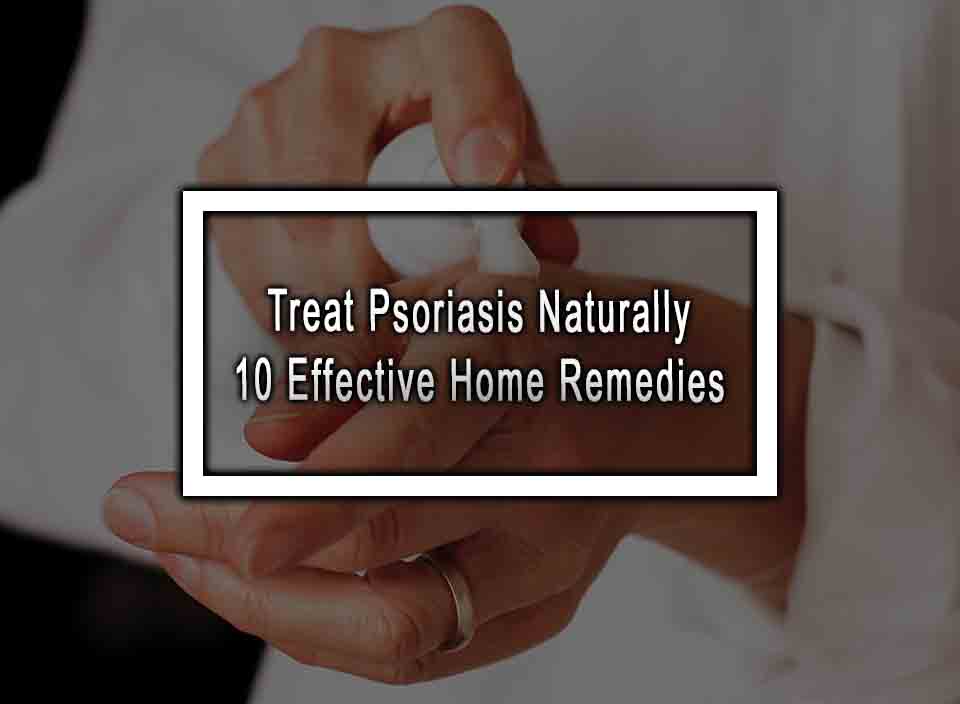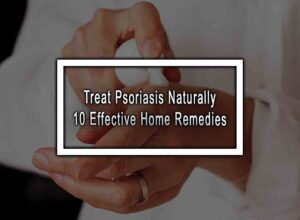Table of Contents
ToggleTreat Psoriasis: Say Goodbye to Psoriasis Flare-ups with These DIY Home Remedies!
Psoriasis, a chronic skin condition characterized by red, itchy patches, can make your life uncomfortable and affect your self-confidence. While there is no cure for psoriasis, there are several natural remedies you can try at home to manage and alleviate its symptoms effectively. From soothing natural ingredients to simple lifestyle changes, we’ve compiled a list of 10 proven home remedies that will assist you in combating psoriasis. So, wave goodbye to flare-ups and say hello to healthier skin today!
1. Moisturize regularly: Lock in hydration for smoother skin
Dryness is a common trigger for psoriasis flare-ups. Applying moisturizers regularly can help reduce irritation and keep your skin well-hydrated. Opt for hypoallergenic and fragrance-free moisturizers that contain ingredients such as aloe vera, shea butter, or coconut oil.
2. Try coal tar treatments: Relieve inflammation and itching
Coal tar is derived from coal and is known for its anti-inflammatory properties, making it a popular choice for managing psoriasis symptoms. Look for over-the-counter creams, soaps, or shampoos containing coal tar to reduce redness, itching, and scaling associated with psoriasis.
3. Embrace the power of sunlight: Get your daily dose of Vitamin D
Sunlight, particularly its ultraviolet (UV) rays, can be beneficial in managing psoriasis symptoms. Exposing your affected skin to natural sunlight or undergoing controlled phototherapy sessions can help reduce inflammation and slow down the growth of skin cells. However, make sure to consult a healthcare professional before sun exposure to determine the appropriate duration and precautions suitable for your skin.
4. Indulge in sea salt baths: Soothe your skin and reduce itchiness
Sea salt baths can be incredibly soothing for psoriasis-prone skin. The minerals in sea salt help eliminate toxins, reduce redness, and calm irritated skin. Add a cup or two of sea salt to your warm bathwater and soak for 15-20 minutes to experience the relaxing and therapeutic effects.
5. Harness the benefits of turmeric: Fight inflammation from within
Turmeric, a vibrant yellow spice, is well-known for its anti-inflammatory and antioxidant properties. Incorporate turmeric into your diet by adding it to smoothies, soups, or curries, or consider taking curcumin supplements. Consuming turmeric regularly may help alleviate psoriasis symptoms by reducing inflammation from within.
6. Explore the wonders of aloe vera: Soothe and heal your skin
Aloe vera has been used for centuries to treat various skin conditions, including psoriasis. Its gel-like substance contains anti-inflammatory compounds that calm skin inflammation, reduce redness, and promote healing. Apply aloe vera gel directly to your psoriasis patches to soothe and moisturize the affected areas.
7. Opt for an anti-inflammatory diet: Nourish your skin from the inside out
A healthy diet plays a crucial role in managing psoriasis. Incorporate anti-inflammatory foods like fatty fish (salmon, mackerel), leafy greens, berries, and nuts into your meals. Avoiding trigger foods like processed foods, alcohol, and sugar can also contribute to safer, clearer skin.
8. Manage stress levels: Relaxation techniques for better skin
High-stress levels can worsen psoriasis symptoms. Engaging in stress-reducing activities such as yoga, meditation, or deep breathing exercises can help alleviate symptoms. Find what works best for you and incorporate stress management techniques into your daily routine to promote better overall well-being.
9. Consider natural supplements: Boost your body’s defense against psoriasis
Certain supplements, like fish oil, vitamin D, and probiotics, have shown potential benefits in managing psoriasis. Consult with a healthcare professional to determine the appropriate dosage and suitability for your specific needs. These supplements can complement your overall treatment plan and support your body’s defense against psoriasis.
10. Maintain a consistent skincare routine: Be kind to your skin
Creating a suitable skincare routine and following it diligently is vital in managing psoriasis. Gently cleanse your skin, always pat dry (avoid rubbing), and apply any prescribed medications or topical treatments as instructed by your healthcare provider. Consistency is key for reducing flare-ups and maintaining healthier skin.
Conclusion
Psoriasis can be a challenging condition to live with, but with the right approach, you can effectively manage its symptoms from the comfort of your own home. By incorporating these 10 natural remedies into your routine, you’ll be taking significant steps towards healthier, calmer, and more comfortable skin. Remember, it’s always essential to consult with a healthcare professional before beginning any new treatment regimen. Embrace the power of these DIY methods, and say hello to smoother, happier skin!”
Treat Psoriasis Naturally FAQ
Here are the most common questions about treating psoriasis naturally.
1. How can diet affect psoriasis?
Although there is no specific diet that has been proven to cure psoriasis, maintaining a healthy and balanced diet can have a positive impact on overall skin health. Eating foods rich in omega-3 fatty acids, antioxidants, and vitamins can help support the immune system and reduce inflammation.
2. Can stress trigger or worsen psoriasis?
Yes, stress can be a trigger or exacerbate psoriasis symptoms. Managing stress levels through relaxation techniques, exercise, or therapy may help in managing the condition.
3. Can natural treatments replace medical treatments for psoriasis?
Natural treatments may complement medical treatments for psoriasis, but they should not replace them entirely. It’s important to consult with a healthcare professional or dermatologist for an appropriate treatment plan based on individual needs.
4. What are the symptoms of psoriasis?
The most common symptoms of psoriasis include red, inflamed patches of skin covered with thick, silvery scales. These patches may be itchy and painful and can occur on any part of the body.
5. Can psoriasis be cured?
Psoriasis cannot be cured, but it can be managed effectively with various treatment options. Natural treatments can also help alleviate symptoms and improve the quality of life for individuals with psoriasis.
Disclaimer: The information provided here is for informational purposes only and should not be considered medical advice. Always consult with a healthcare professional before starting any natural treatments or making changes to your current treatment plan.












